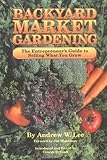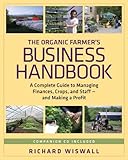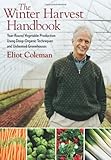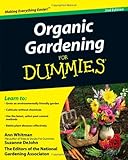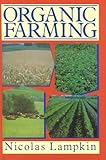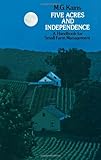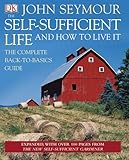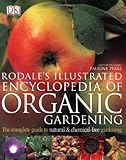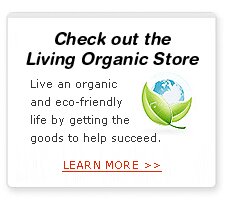Living Organic Online Store
Organic Farming Books
Food for the Future
Big ideas made simple -- six books in an incredible new series that explains important scientific ideas more clearly than ever before. A safe supply of healthy food is a necessity for all societies, but seems harder than ever to achieve. This book examines modern farming methods, problems such as BSE, and potential solutions -- from organic to genetically modified foods. This stimulating new series uses an innovative mix of graphics, artwork, and photographs to explain and illuminate the most important scientific topics of the day. Unique in popular science guides, Essential Science uses bright, full-color images to make traditionally "difficult" subjects more accessible. Each title focuses on a scientific or technological topic that is currently provoking debate and is likely to have a widespread impact on our lives. Lively, readable text from top science writers ensures all readers -- from 14+ schoolchildren to academics -- gain a full understanding of the facts and related issues. Under the direction of renowned science writer John Gribbin, expert authors describe, in lively, jargon-free text, the principles and discoveries behind each subject, summarize what is currently known, and predict future issues and trends.
Backyard Market Gardening: The Entrepreneur's Guide to Selling What You Grow
Discover how easy and profitable it is to grow ans sell vegetables, fruits, flowers, herbs and small livestock from your own backyard market garden. Learn how others grow and sell: o 14,000 pounds of food, on less than one-eighth acre - Ohio o $150,000 from one-half acre, to fancy restaurants - California o $40,000 from one acre of oriental raised beds - Oregon o $36,000 from 3/4 acre, to city farmers' markets - Massachusetts Learn how you can: . Earn top dollar, with minimum effort and maximum profits. . Grow high-value crops in small spaces, efficiently and quickly. . Improve your garden soil for super yields and superb flavor. . Create markets that are profitable, reliable, fun and sustainable. . Improve your garden soil for super yields and superb flavor. . Buy or build tools that speed your work and increase profits. . Enjoy a guaranteed salary from community supported agriculture or a membership garden. Find your market niche in: membership gardening, community supported agriculture, farmers' markets, card table in your front yard, farm stands, clientele membership clubs, producers cooperatives, restaurants, caterers, institutions, pick your own and even growing specialty crops for your neighbor's salsa recipe. "BACKYARD MARKET GARDENING is the book that shows you how to do what you can with what you have where you are." - George DeVault, Organic Gardening Magazine. "Market gardening as described by Andy Lee is very rewarding to the soul, the soil, the environment, and the flow of capital."- Jim Hightower, Austin, Texas
The Organic Farmer's Business Handbook: A Complete Guide to Managing Finances, Crops, and Staff - and Making a Profit
Contrary to popular belief, a good living can be made on an organic farm. What’s required is farming smarter, not harder. In The Organic Farmer’s Business Handbook, Richard Wiswall shares advice on how to make your vegetable production more efficient, better manage your employees and finances, and turn a profit. From his twenty-seven years of experience at Cate Farm in Vermont, Wiswall knows firsthand the joys of starting and operating an organic farm—as well as the challenges of making a living from one. Farming offers fundamental satisfaction from producing food, working outdoors, being one’s own boss, and working intimately with nature. But, unfortunately, many farmers avoid learning about the business end of farming; because of this, they often work harder than they need to, or quit farming altogether because of frustrating—and often avoidable—losses. In this comprehensive business kit, Wiswall covers: Step-by-step procedures to make your crop production more efficient Advice on managing employees, farm operations, and office systems Novel marketing strategies What to do with your profits: business spending, investing, and planning for retirement A companion CD offers valuable business tools, including easy-to-use spreadsheets for projecting cash flow, a payroll calculator, comprehensive crop budgets for forty different crops, and tax planners.
The Winter Harvest Handbook: Year Round Vegetable Production Using Deep Organic Techniques and Unheated Greenhouses
Choosing locally grown organic food is a sustainable living trend that’s taken hold throughout North America. Celebrated farming expert Eliot Coleman helped start this movement with The New Organic Grower published 20 years ago. He continues to lead the way, pushing the limits of the harvest season while working his world-renowned organic farm in Harborside, Maine. Now, with his long-awaited new book, The Winter Harvest Handbook, anyone can have access to his hard-won experience. Gardeners and farmers can use the innovative, highly successful methods Coleman describes in this comprehensive handbook to raise crops throughout the coldest of winters. Building on the techniques that hundreds of thousands of farmers and gardeners adopted from The New Organic Grower and Four-Season Harvest, this new book focuses on growing produce of unparalleled freshness and quality in customized unheated or, in some cases, minimally heated, movable plastic greenhouses. Coleman offers clear, concise details on greenhouse construction and maintenance, planting schedules, crop management, harvesting practices, and even marketing methods in this complete, meticulous, and illustrated guide. Readers have access to all the techniques that have proven to produce higher-quality crops on Coleman’s own farm. His painstaking research and experimentation with more than 30 different crops will be valuable to small farmers, homesteaders, and experienced home gardeners who seek to expand their production seasons. A passionate advocate for the revival of small-scale sustainable farming, Coleman provides a practical model for supplying fresh, locally grown produce during the winter season, even in climates where conventional wisdom says it “just can’t be done.”
The Winter Harvest Handbook: Year-Round Vegetable Production Using Deep-Organic Techniques and Unheated Greenhouses
Choosing locally grown organic food is a sustainable living trend thatas taken hold throughout North America. Celebrated farming expert Eliot Coleman helped start this movement with "The New Organic Grower" published 20 years ago. He continues to lead the way, pushing the limits of the harvest season while working his world-renowned organic farm in Harborside, Maine.Now, with his long-awaited new book, "The Winter Harvest Handbook," anyone can have access to his hard-won experience. Gardeners and farmers can use the innovative, highly successful methods Coleman describes in this comprehensive handbook to raise crops throughout the coldest of winters.Building on the techniques that hundreds of thousands of farmers and gardeners adopted from "The New Organic Grower" and "Four-Season Harvest," this new book focuses on growing produce of unparalleled freshness and quality in customized unheated or, in some cases, minimally heated, movable plastic greenhouses.Coleman offers clear, concise details on greenhouse construction and maintenance, planting schedules, crop management, harvesting practices, and even marketing methods in this complete, meticulous, and illustrated guide. Readers have access to all the techniques that have proven to produce higher-quality crops on Colemanas own farm.His painstaking research and experimentation with more than 30 different crops will be valuable to small farmers, homesteaders, and experienced home gardeners who seek to expand their production seasons.A passionate advocate for the revival of small-scale sustainable farming, Coleman provides a practical model for supplying fresh, locally grown produce during the winter season, even in climates where conventional wisdom says it ajust canat be done.a
Organic Gardening For Dummies
Organic Gardening For Dummies, 2nd Edition shows readers the way to ensure a healthy harvest from their environmentally friendly garden. It covers information on the newest and safest natural fertilizers and pest control methods, composting, cultivation without chemicals, and how to battle plant diseases. It also has information on updated equipment and resources. It helps readers plant organically year-round, using herbs, fruits, vegetables, lawn care, trees and shrubs, and flowers. The tips and techniques included in Organic Gardening For Dummies, 2nd Edition are intended to reduce a garden's impact on both the environment and the wallet.
Starting & Running Your Own Small Farm Business: Small-Farm Success Stories * Financial Assistance Sources * Marketing & Selling Ideas * Business Plan Forms & Documents
To help farmers position themselves well for the opportunities of today's market, Sarah Aubrey, a successful farm-based business owner, shares her years of research and first-hand experience in Starting & Running Your Own Small Farm Business. Here is everything you need to know to launch a small agricultural enterprise, from initial start-up to consumer marketing. Begin by fine-tuning your idea into a viable business plan, and then learn how to go out and sell it. Secure financing, work out the legalities, follow USDA guidelines--- and a farming business is born. Aubrey explains every step of the process and even includes samples of the required forms.Every small farmer must also become a skilled salesperson and marketing professional. Aubrey covers all sales venues — from rural farmstands to web sites to food service wholesalers — and explains the pros and cons of each. She also explains how to create and stick to an advertising budget, develop pricing strategies, and protect personal assets.Aubrey brings her business advice to life with profiles of farmers who are successfully selling everything from small batches of wine to exotic animals, such as elk and alpacas. Their stories are mini-courses in successful farming, sure to inspire every reader.
Organic Farming, Revised Edition
The current growth of organic farming is being fuelled by market demand. Nicolas Lampkin's book spells out both the principles underlying organic farming and the practical ways in which farmers can respond. He is particularly concerned with the economics of organic farming - a key point for farmers thinking of converting their land. The first part of his book spells out the principles: soil structure, crop nutrition, management of wastes, rotation design, weed management, pest and disease control, livestock husbandry. In the second part he goes into practical details for livestock systems, grassland and fodder crops, arable and horticultural crops, marketing and processing, physical and financial performance, and the conversion process. Some of the evidence on food quality and environmental impact is also reviewed. This is a guide to a way of farming which aims to be in partnership with the natural world rather than dominating it.
From Foraging to Farming in the Andes: New Perspectives on Food Production and Social Organization
Archeologists have always considered the beginnings of Andean civilization from ca. 13,000 to 6,000 years ago to be important in terms of the appearance of domesticated plants and animals, social differentiation, and a sedentary lifestyle, but there is more to this period than just these developments. During this period, the spread of crop production and other technologies, kinship-based labor projects, mound-building, and population aggregation formed ever-changing conditions across the Andes. From Foraging to Farming in the Andes proposes a new and more complex model for understanding the transition from hunting and gathering to cultivation. It argues that such developments evolved regionally, were fluid and uneven, and were subject to reversal. This book develops these arguments from a large body of archaeological evidence, collected over 30 years in two valleys in northern Peru, and then places the valleys in the context of recent scholarship studying similar developments around world.
Organic Dairy Farming: A Resource for Farmers
Written for the transitioning and new organic farmer, Organic Dairy Farming brings together for the first time in a single volume the information to explain everything from organic soil management, calf care and mastitis control to the certification process and marketing for the organic premium. Combining up-to-date advice from 20 experts in a variety of fields, it presents organic concepts and practices in a readable form. The book includes farmer interviews demonstrating how they have successfully applied organic practices on their own farms. Over sixty illustrations, glossary, list of resources and complete index make the book very useable. An essential tool for both the farmer and the agricultural professional.
Molly's Organic Farm
Whoosh . . . the wind blows open a creaky gate. Inquisitive and mischievous, a homeless little cat scampers through—and suddenly finds herself in the wondrous world of an organic farm! Affectionately named "Molly" by the farmers who discover her, she romps, naps, and hunts among the vegetables. Seen through Molly's eyes, the reader discovers the interplay of nature that grows wholesome food. But what will happen to Molly when winter comes? Based on a true story, Molly will touch children's hearts while introducing them to plants and the key elements of growing food organically. Standards-based science concepts and activities at the end of the book expand the message of the story.
Five Acres and Independence: A Handbook for Small Farm Management
This classic of the back-to-the-land movement is packed with solid, timeless information. Written by a renowned horticulturist, it has taught generations how to make their land self-sufficient, with explanations of organic farming techniques and reliable advice on other topics, including irrigation, livestock, crops, greenhouses, fertilizers, much more. 95 figures.
Organic Vegetable Production: A Complete Guide
"Organic Vegetable Production" provides an invaluable, practical guide to the production of organic vegetables across a range of organic farming systems in temperate areas. The book covers all aspects of production, including crop choice, fertility building, and weed, pest, and disease management within a framework of rotation design and business planning. The specific needs of a range of commonly grown vegetable crops are discussed in detail.
The Self-Sufficient Life and How to Live It
The Self Sufficient Life and How to Live It is the only book that teaches all the skills needed to live independently in harmony with the land harnessing natural forms of energy, raising crops and keeping livestock, preserving foodstuffs, making beer and wine, basketry, carpentry, weaving, and much more. Our 2009 edition includes 150 new full-color illustrations and a special section in which John Seymour, the father of the back to basics movement, explains the philosophy of self-sufficiency and its power to transform lives and create communities. More relevant than ever in our high-tech world, The Self Sufficient Life and How to Live It is the ultimate practical guide for realists and dreamers alike.
Rodale's Illustrated Encyclopedia of Organic Gardening
Whether an experienced gardener is looking to go organic or a beginner wants to create a healthy, eco-friendly garden, the Rodale's Illustrated Encyclopedia of Organic Gardening contains the tips and techniques needed to produce beautiful flowers, top-quality herbs, and appetizing, wholesome fruits and vegetables. Explore the latest methods for cultivation without chemicals, discover the benefits of composting, and learn how to maintain an organic garden year-round.
The Organic Farming Manual: A Comprehensive Guide to Starting and Running a Certified Organic Farm
As the organic food market continues to expand, so too do the opportunities for small farmers. For the farmer, the benefits of running an organic operation are great. Organic farms conserve nonrenewable resources, offer better conditions for farm animals, produce high-demand goods, and boost farm income. As the organic food market continues to expand, so do the opportunities for small farmers. The Organic Farming Manual is a comprehensive guide to growing, certifying, and marketing organic produce, grains, meat, and dairy. Beginning farmers committed to launching an organic operation and experienced farmers hoping to transition from traditional farming techniques will find all the information they need. The organic certification process is lengthy and demanding, but author Ann Larkin Hansen clarifies every USDA requirement and offers complete advice on selecting equipment, tending the land, caring for animals, and marketing farm products.Readers will also find profiles of successful organic farmers throughout the book. Their experiences provide inspiration and valuable tips for first-time farmers looking for real success stories. Hansen's thorough coverage of the subject and the positive words of established growers will set countless farmers on a healthful, organic path.
The Flower Farmer: An Organic Grower's Guide to Raising and Selling Cut Flowers
Acre-for-acre, flowers are the most profitable--as well as the most beautiful--crop on the farm. In "The Flower Farmer" expert flower grower Lynn Byczynski provides a complete introduction to raising a cornucopia of cut flowers for home use and for sale to retail customers, florists, and other markets. The book offers detailed, manageable plans for flower growing on a scale ranging from a backyard border to a half-acre commercial garden. It will appeal to a broad spectrum of readers, including: Home gardeners who want growing tips from professionals, so that they can enjoy an abundance of flowers year-round in fresh and dried bouquets Passionate gardeners and small-scale growers who want to raise and sell cut flowers in season for additional income Small commercial farmers who want to increase farm revenue or even make a living from selling field-grown, specialty cut flowers. "The Flower Farmer" provides a clear, realistic look at both the benefits and the challenges of growing flowers organically for local markets. Chapters include information on: The best varieties of cut flowers--an A-Z list of more than one hundred recommended annuals and perennials, spotlighting the cultivars that are grown by professional flower farmers How to cut, store, and preserve flowers for long-lasting beauty How to dry flowers for crafting or for a dried-flower business Flower-arranging basics from a designer's perspective Extending the season with woody shrubs and trees Marketing options for commercial growers, including sales at farmer's markets, supermarkets, florists, and wholesalers. Sprinkled throughout are profiles of successful flower farmers--from Vermontto California, Texas to Wisconsin--each of them providing a unique perspective proving that growing flowers can be as profitable as it is satisfying.
Backyard Market Gardening
Discover how easy and profitable it is to grow ans sell vegetables, fruits, flowers, herbs and small livestock from your own backyard market garden. Learn how others grow and sell: o 14,000 pounds of food, on less than one-eighth acre - Ohio o $150,000 from one-half acre, to fancy restaurants - California o $40,000 from one acre of oriental raised beds - Oregon o $36,000 from 3/4 acre, to city farmers' markets - Massachusetts Learn how you can: . Earn top dollar, with minimum effort and maximum profits. . Grow high-value crops in small spaces, efficiently and quickly. . Improve your garden soil for super yields and superb flavor. . Create markets that are profitable, reliable, fun and sustainable. . Improve your garden soil for super yields and superb flavor. . Buy or build tools that speed your work and increase profits. . Enjoy a guaranteed salary from community supported agriculture or a membership garden. Find your market niche in: membership gardening, community supported agriculture, farmers' markets, card table in your front yard, farm stands, clientele membership clubs, producers cooperatives, restaurants, caterers, institutions, pick your own and even growing specialty crops for your neighbor's salsa recipe. "BACKYARD MARKET GARDENING is the book that shows you how to do what you can with what you have where you are." - George DeVault, Organic Gardening Magazine. "Market gardening as described by Andy Lee is very rewarding to the soul, the soil, the environment, and the flow of capital."- Jim Hightower, Austin, Texas






